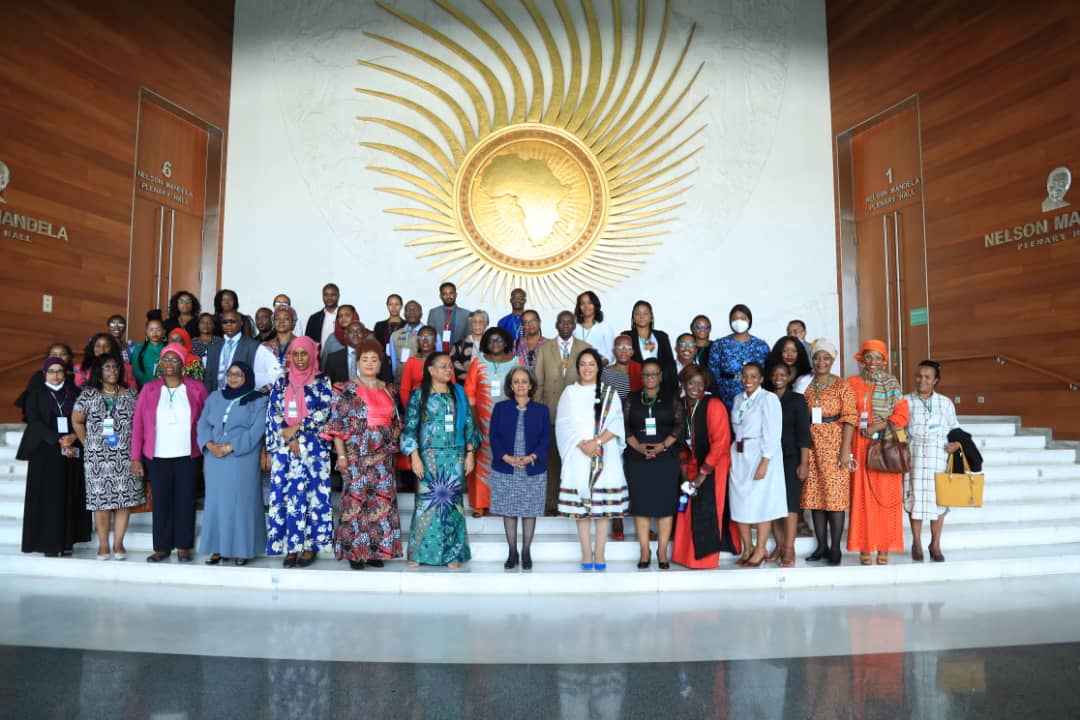CSW66: African Countries Agree on Common Position to Integrate Gender Equality in Climate Action Agenda
Date:
[Press release]

The climate crisis is not a “gender neutral” global crisis, women and girls experience the greatest impacts of climate change. Women and girls are essential, effective and powerful leaders and change-makers to address climate adaptation, mitigation and solutions. These were some of the key issues highlighted at the Africa Pre-CSW66 Ministerial consultations convened by the African Union in partnership with UN Women, UNECA and UNDP.
Across societies the impacts of climate change affect women and men differently. Women are often responsible for gathering and producing food, collecting water and sourcing fuel for heating and cooking. Women represent 90% of employment in the agriculture sector in many African countries. This means that women in Africa are highly exposed and vulnerable to the impacts of climate change and disasters.
Despite women being disproportionately affected by climate change, they play a crucial role in climate change adaptation and mitigation. Women have the knowledge and understanding of what is needed to adapt to changing environmental conditions and to come up with practical solutions. But they are still a largely untapped resource.
The Africa Pre-CSW Ministerial meeting was attended by H.E. President Sahle-Work Zewde, the President of the Federal Democratic Republic of Ethiopia, Hon. Dr. Ergogie Tesfaye, Minister of Women and Social Affairs of Ethiopia, H.E. Dr. Véronique Tognifodé, Chairperson, Specialized Technical Committee on Gender Equality and Women’s Empowerment and Minister of Social Affairs and Microfinance, Republic of Benin along with other African Ministers for Gender Affairs.
Speaking at the gathering, the Deputy Chairperson of the African Union Commission, H.E. Dr. Monique Nsanzabaganwa, acknowledged that climate change and environmental crises are key defining challenges of this generation and this region as they manifest differently across the continent, nations, communities and various social groups. However, she noted that, to address these issues requires collective efforts and responsibility to secure and deliver a healthy and sustainable future for our women and girls: “All stakeholders and policy makers need to take urgent action and direct their resources to removing barriers faced by women in accessing social and economic capital, productive resources, information, skills and technology – all of which are vital in shaping and determining their ability to respond to climate change”, H.E. urged.
In his remarks, addressing the pre-CSW Expert Consultations participants, Dr. Maxime Houinato, UN Women Regional Director for East and Southern Africa urged participants to centre the urgency, voices and leadership of African women in their discussions, and to be guided by women and girls’ experience in biodiversity conservation, sustainable food and agricultural systems as farmers, producers and knowledge holders.
He stated: “UN Women will continue to advocate for gender equality and the inclusion of women and girls’ voices in policy dialogue spaces and programming on climate change mitigation and adaptation as well as disaster risk reduction efforts. We will broaden our support through initiatives on women's economic empowerment which focus on Climate Smart Agriculture throughout Africa”.
Before COVID-19, the world was already in the grip of a climate emergency. Inequalities across various sectors have left us with another challenge to resolve. Study shows that more than 70% of girls’ experience high levels of gender inequality predominantly in developing countries. However, it finds that if society can follow a pathway of sustainable development in the coming decades, progress towards achieving gender equality could see this number drop below 25% by 2030.
The 66th Pre-CSW which hosted both experts and ministers, reviewed and adopted the Common Africa Position for CSW66 and highlighted the following:
- Fulfil existing commitments and obligations under the Rio conventions and the Sendai Framework;
- Strengthen the capacity of national statistical offices and government institutions to collect, analyse, disseminate, and use disaggregated data to conduct gender analysis on climate change, environmental and disaster and risk reduction
- Provide capacity and technical support at regional and national levels to ensure that action plans on climate change and disaster risk reduction are gender-responsive and transformative;
- Strengthen inter-governmental coordination mechanisms to foster joint strategies by gender machineries and environment ministries;
- Invest in early childhood care services and take the appropriate practical measures, such as the building of community childcare centres, to reduce unpaid care work burdens of women and girls, most of whom are in the agricultural sector and highly exposed to the impacts of climate change.
The Commission on the Status of Women (CSW) remains instrumental in promoting women’s rights, documenting the reality of women’s lives throughout the world, and shaping global standards on gender equality and the empowerment of women.
For further information, please contact:
Priscilla Mawuena Adjeidu, Communications Officer | Youth Division | African Union Commission|
E-mail: AdjeiduP@africa-union.org | Addis Ababa, Ethiopia
Aijamal Duishebaeva, Regional Communications Specialist, UN Women East and Southern Africa|
Email: aijamal.duishebaeva@unwomen.org